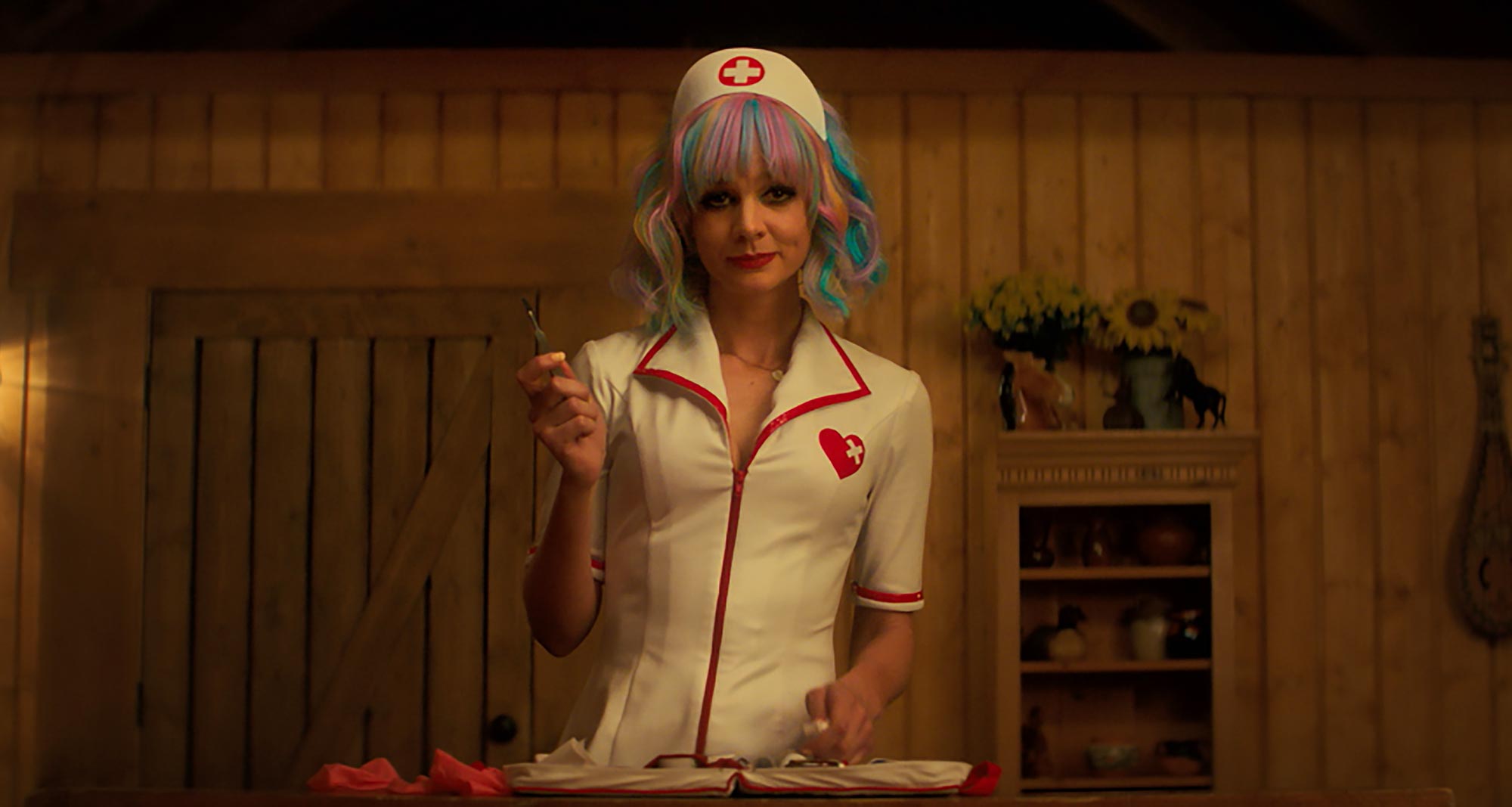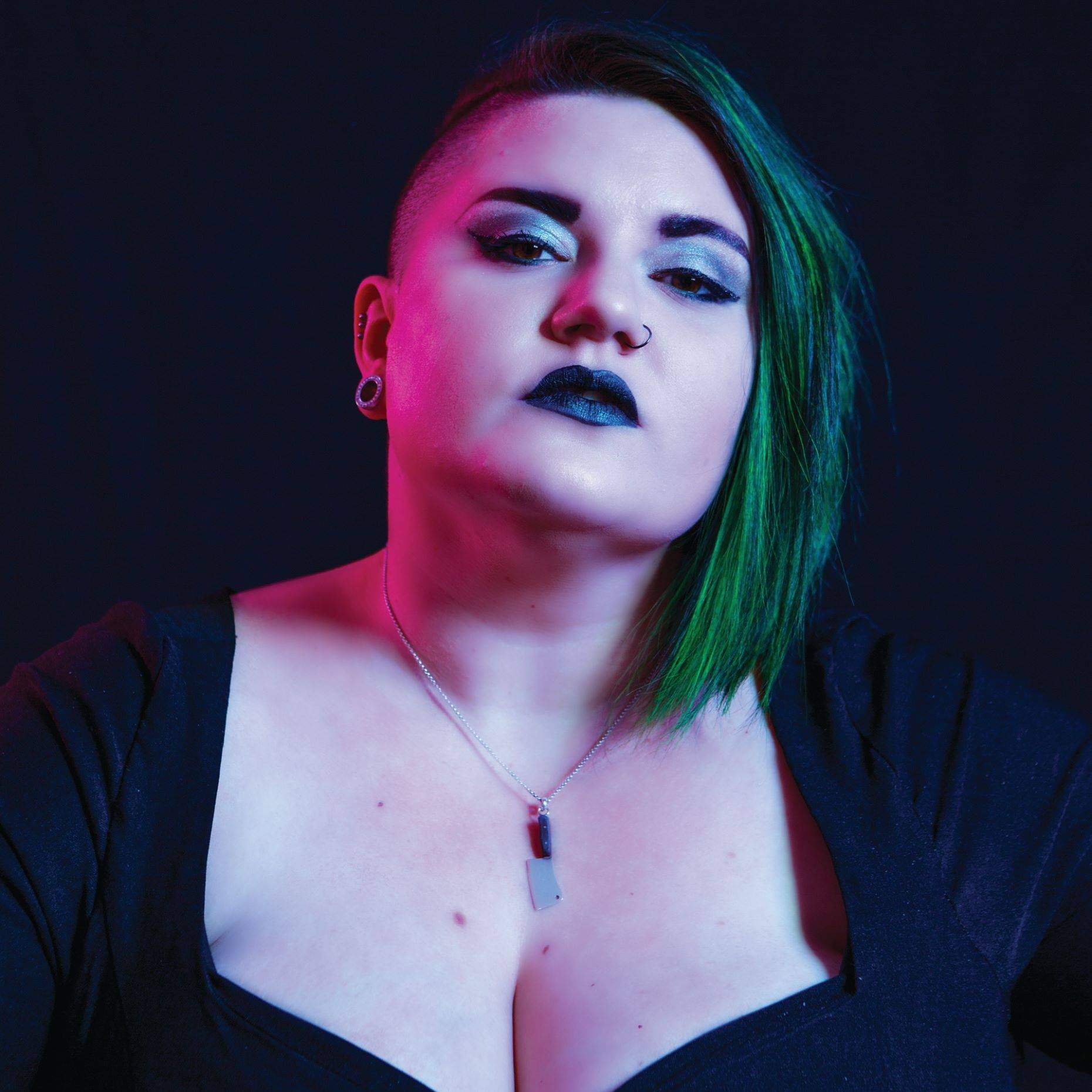Promising Young Woman's ending explained — and defended
This highly controversial and emotionally charged ending of Promising Young Woman is one worth fighting for.

This post contains spoilers for Promising Young Woman.
Emerald Fennell’s feature debut was one of the most talked-about films of 2020. Now that Promising Young Woman is available to rent on-demand, a wider audience will have a chance to see what so many have been debating since its release—the film’s powerful albeit polarizing ending. First things first, Promising Young Woman is a film centered around rape culture, misogyny, victim-blaming, and injustice.
Since the film debuted, there have been passionate conversations surrounding the subject matter. There are those who have called it “enraging at best and problematic at worse,” and one writer even described it as leaving “a nasty taste in [their] mouth.” I highlight those with differing opinions than mine because every survivor is going to be impacted by this film differently. It's important to hear from varying perspectives, and I am in no way trying to shut out those voices. Oftentimes, we view survivors as a monolith, expecting all who have experienced this film's dark thesis first-hand to respond the same way.
Something to bear in mind here is that all art is subjective. Given the relatability of the film for many, many women, it's absolutely impossible to watch and separate one's own lived experiences. Because of that, it feels as if there are some fundamental misunderstandings of the ending's intentions, difficult to see with the lens of our own personal journeys blocking the view. No one needs to enjoy the story or respect the film, but I did want to add (another) survivor's perspective on the film.
I personally do not view Promising Young Woman as a rape-revenge film. The victim, Nina, is unseen throughout the film because she tragically ended her life as part of the fallout of her rape. She is not here to enact her own justice. There is no catharsis for Nina. We are left instead with her friend Cassie (Carey Mulligan) — consumed by the injustice and failures that surrounded her best friend that could have possibly saved her — fueled with pain and rage looking to honor her memory by actually doing something.
The story circumvents film conventions from the very start and leaves us scrambling to find our way home after realizing the familiar trails do not exist. We watch as Cassie lures in her latest victim, absolutely positive as an audience member that we know how this situation is going to play out, only to be whiplashed that the perceived blood on her legs during a barefoot “walk of shame” is actually the dripping innards of a jelly donut. Promising Young Woman spends so much time reminding you that this is not a film you’ve seen before, but more importantly, that it’s not trying to be. Thematically speaking, this film is closer to a John Wick or a Death Wish than it is to a Ms. 45 or I Spit on Your Grave. Cassie is acting out her vigilante behavior from the love she has for Nina, except of course, that Cassie doesn’t actually kill anyone.
For almost the entire movie, Cassie’s goal is to terrify a culture and attempt to dismantle a system that contributed to the demise of her best friend in whatever small way she can. She keeps a list of the random names of people she’s hopefully scared straight, adding them to the list only after the fact--never before. Cassie’s motivation is not to live out like Lady Snowblood, Arya Stark, or the Bride from Kill Bill. Her list is not targeted or intentional, it’s merely a document of people that she’s encountered.
It is only when the opportunity presents itself to come face to face with the people who specifically hurt Nina that her motivations change. From the moment that she hears the name “Al Monroe,”— the name that had skyrocketed to glory while her best friend’s name was relegated as a footnote no matter how hard Cassie tried to keep it alive — everything shifts. Her focus tunnels in on Al (Chris Lowell), her previous generalized tactics we had seen time and time again suddenly flip to something specific to target Al and his friends.
Her old wounds are ripped open. It's then and only then that Cassie starts tracking down the complicit parties in Nina’s rape and subsequent mishandling. The female friend who slut-shamed her and compared it to “crying wolf,” the female Dean who cared more about the promising reputation of a future male doctor and wrote it off as another case of he said/she said, and the male lawyer who harassed Nina until she dropped the charges. In all three cases, Cassie’s form of revenge is giving them a taste of their own medicine, teaching them empathy by forcing them into Nina’s shoes. Cassie realizes these people are only going to “get it” if they feel like they are on the receiving end of the systems and behaviors that failed Nina.
Later, Cassie blackmails her ex-boyfriend Ryan (Bo Burnham) — after discovering he was a participant in Nina’s rape — for the location of Al’s bachelor party and shows up pretending to be a hired stripper for the occasion, dressed like a nurse. She drugs the groomsmen, takes Al upstairs and locks him to a bed using those cheap, fluffy, pink handcuffs normally reserved for bachelorette parties or gag gifts. Cassie then attempts to carve Nina’s name onto Al’s body when he breaks off one of the handcuffs and kills Cassie by smothering her with a pillow.
The next morning Al’s best friend comes upstairs to find him strapped to the bed and still laying next to Cassie’s dead body. The two burn her body on a pyre and move on as if nothing happened. Ryan, knowing full well where Cassie went that weekend, lies to the police and pretends to know nothing when asked if he knew of her whereabouts.

After Cassie’s death, Al Monroe’s wedding goes on as planned until the police show up to have him arrested for her murder. In tandem, a pre-timed text message shows up on Ryan’s phone indicating that everything is going to plan. Cassie knew full well what would happen if she dared to take on her friend's rapist and yet she did it anyway. It’s the reason she brought handcuffs probably purchased from Hot Topic instead of something stronger. It’s the reason she meticulously planned the aftermath revenge plot that only functions if she dies. Sure, I completely understand why so many people have viewed this ending as “hollow” and “bleak,” but in the world that Fennell has shaped — it’s exactly the way it was supposed to end. It was always going to be Cassie and Nina.
In the end, both women did what they set out to do. They're allowed to go out on their own terms. This is the choice they've made because it's the best one for them after other choices were stripped away.
[Content warning: rape]
I waited until the very end of this piece to incorporate my own lived experience into my read of this film, knowing my admission runs the risk of serving as a distraction. Without divulging too many details, the first time I was raped was similar to what happened to Nina. Seeing that reflected on screen in a way that wasn’t a documentary on Steubenville was jarring, to say the least, but finally having that representation was more than appreciated.
A few years ago, one of the men that participated in my gang rape took his own life. The day I found out, there was no catharsis. The high I had been chasing from years of consuming rape-revenge films and watching rapists get their comeuppance just wasn’t there. There was no relief. There was no weight lifted off my shoulders. Promising Young Woman knows that there’s no good way for these stories to end, and is brave enough to show it.
This story is not afraid to highlight the horrific and hopeless reality of rape culture in America and points out that catharsis is usually something reserved for movies and TV shows. Once again, the film is practically screaming in our faces that this is not a rape-revenge movie and we probably aren't going to get what we want out of this film, because that's not what the film is.
Get the What to Watch Newsletter
The latest updates, reviews and unmissable series to watch and more!
BJ Colangelo is an award winning filmmaker and film analyst specializing in dismissed cinema and television. She writes about horror, wrestling, musicals, adult animation, sex and gender, kicking pancreatic cancer’s ass, and being a fat queer in places like Fangoria, Vulture, The Daily Dot, Autostraddle, Playboy.com, and a handful of books college students get assigned to read. She’s also the co-host of the teen girl movie podcast, This Ends at Prom, with her wife, Harmony.


